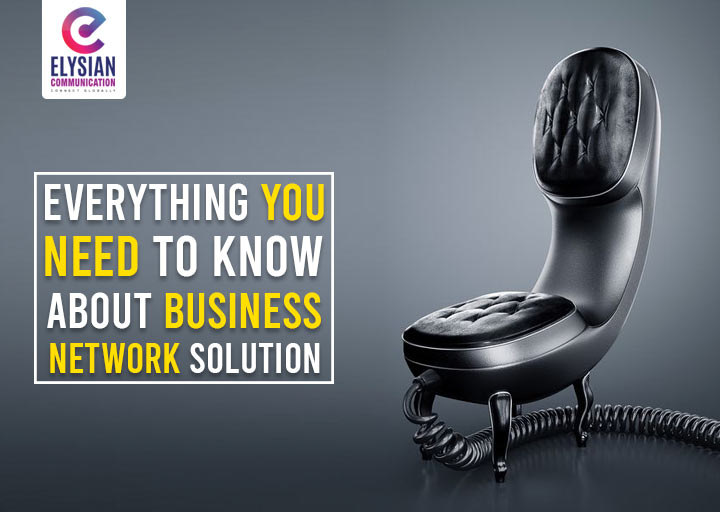Network Solutions For Business: Networking can be intimidating, especially if you don’t have an IT team in place to tell you what you need and why. While your installer will be more than happy to provide you with everything you need, it’s always a good idea that you understand what you need, why you need it, and what it should do.
Your business networking solution will enable data transfer and storage; it will allow any work on computers, connect you to cloud tooling, and allow even simple businesses processes like accepting credit cards.
If you have a business, whether small or big, you probably have a computer network. Today, all the data of the any-sized company is keeping in computer-generated form; the protection of your network should be considered thoughtfully. There are plenty of network solutions available for today, but how to choose the right one exactly for your company.
Efficient Network Solutions for Business
Try to know more about network provider to ensure it delivers an efficient solution for businesses. Before accepting a service, you should get as much information as you can about the company. For example, you may contact the service provider’s clients and ask about the experience of collaboration with that company. In addition, the provider should have the latest support and network specifications to deliver you exactly what you want.
Select Right Equipment for Network solutions
As we said, many threats can arise during the operation of your network solutions. Ensure your network provider has the latest server and network solutions and support to resolve any maintenance issues you can face, including protection against internal and external security issues.
Choose the Right Network solution
In most cases, installing a small business network will involve:
- Contacting an installer.
- Going over needs and budget.
- Allowing them to choose most of your solutions for you.
This is ideal for small businesses and especially ideal when choosing to outsource IT or otherwise outsource networking rather than taking on an internal team.
Installing routers and switches with remote power and management solutions allows you to handle updates and security patches remotely. This is especially crucial when looking at small installations or difficult-to-reach installations that might require more time or effort to service regularly.
Design a network that can easily be expanded, upgraded, and improved. This means choosing network management software that can grow to meet your needs, offers the security functions you need, and covers necessities such as VoIP, WAP, and remote access.
If you don’t use it, switch it off
If your network device is remotely managed with ssh, turn off every other service for remote management that the device has to offer. For example, Cisco routers and switches have been remotely exploited for quite some time on port 80 and 443. If possible, switch this service off or block access to your network devices on these ports. Also, lock down your ssh (or other remote management interfaces) to specific sources trusted to your organization.
Small business networking solutions allow your organization to work using both private networks and the Internet. They are essential for functionality such as payments, printing, data storage, and even linking computers. Most importantly, choosing a quality network will enable your organization to perform work more quickly, more efficiently, and with greater security, which will benefit your business as a whole.
System specification and procurement
Procurement and system specification represents a challenge to most businesses, particularly those on the smaller side of the scale. Without the right experience and expertise, it may be beyond the scope of existing knowledge to make the right acquisitions. A managed Network support service enables these requirements to be outsourced, saving time and cost and ensuring the right decisions are made.
To sum it all up, information technology covers a broad range of services and industries. Without it, it would be impossible for businesses and society to progress, expand their network, and attain success. From simple processes such as data input and keeping records to implementing complex operations and keeping customers satisfied and protected, advanced systems encompass what traditionally arranged work setups can do.





